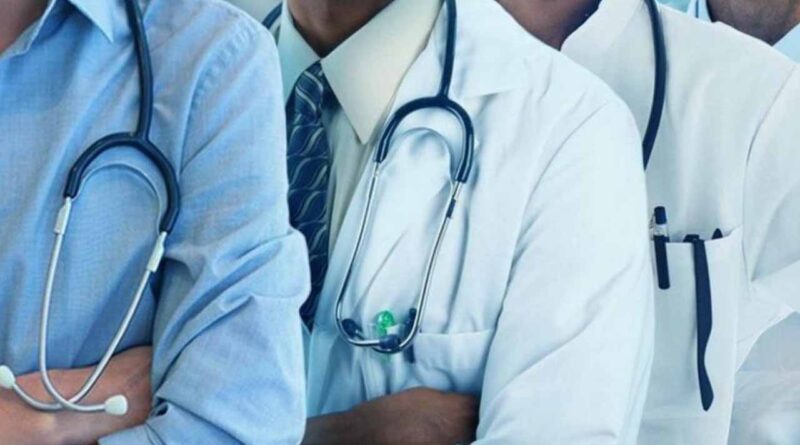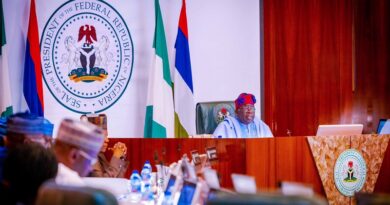Experts Urge 1bn Dollar Boost to Revive Nigeria’s Health
Nigeria’s healthcare sector is facing one of its toughest moments as experts warn that without major investment and manpower expansion the system may continue to deteriorate. A public health specialist and former Chief Medical Director of Lagos University Teaching Hospital LUTH Professor Akin Osibogun have said the country urgently needs about 1 billion dollars and at least 360000 doctors to rebuild its health system and meet the needs of its growing population.
He made this appeal during the 2025 Physicians Week Scientific Conference organized by the Nigerian Medical Association Lagos State Branch. The theme of the event was Healthcare as a Value Chain Building Efficiency from Policy to Patient.
The Need for Greater Health Funding
Professor Osibogun observed that the poor state of healthcare delivery in Nigeria is a reflection of years of underfunding. According to him a nation that spends only about five percent of its budget on health cannot expect results comparable to those in Europe or the United States.
He stated that a serious commitment to funding would not only improve hospitals and training facilities but would also translate into better national productivity and longer life expectancy. He explained that investment in health is an investment in the people and in the economy.
Doctor Shortage and the Reality of Brain Drain
Nigeria’s shortage of medical professionals has become a national concern. Although the country has more than 55000 registered doctors many of them are now practicing abroad due to poor working conditions and low pay.
Using the African standard of one doctor for every 600 people Professor Osibogun estimated that Nigeria would require at least 360000 doctors to provide adequate medical coverage for its citizens. He called on both the federal and state governments to urgently invest in training and retaining medical professionals.
“We should raise one billion dollars immediately and channel it into the health sector to train doctors and other health workers” he said stressing that improving manpower must be a national priority.
ALSO READ: Faith and Diplomacy Unite in African Israeli Visit
Health as a Driver of Economic Growth
Professor Osibogun also emphasized the economic value of a well-funded health system. He said that with proper investment the contribution of the health sector to Nigeria’s Gross Domestic Product could rise from the current five percent to about fifteen percent.
According to him a revitalized health system would generate employment reduce poverty and stimulate national growth. “The health sector can provide work for thousands of Nigerians reduce poverty and grow the economy if it is properly funded” he said.
Lagos Doctors Decry Salary Deductions
During the conference the Lagos NMA chairman Dr Babajide Saheed raised concerns over recent deductions from doctors’ September 2025 salaries. He explained that many medical workers received reduced pay and were informed that earlier payments had been overestimated.
“Our members received lower pay last month They said we were overpaid We are appealing to the government to address this immediately” he said.
Dr Saheed warned that repeated salary issues could discourage doctors and worsen the rate of migration abroad.
Responding to the complaint the Deputy Speaker of the Lagos State House of Assembly Mojisola Meranda promised that the legislature would investigate the matter. She said, “This is the first time I am hearing about this but we will look into it and take the necessary steps.”
Meanwhile the Commissioner for Establishment and Training Afolabi Ayantayo explained through a post on X that the deductions were part of an internal administrative process and not a deliberate pay cut.
NMA Calls for Renewed Commitment
In his remarks the National President of the Nigerian Medical Association Professor Bala Audu said that Nigeria’s health system still faces major challenges in funding infrastructure and workforce retention. He urged all levels of government to commit to practical steps that will strengthen the country’s healthcare delivery.
Building a Healthier Future
Participants at the conference agreed that Nigeria’s health system can only improve through deliberate and sustained investment. They called for collaboration between government private sector and development partners to rebuild infrastructure train workers and make healthcare accessible to every Nigerian.
As Professor Osibogun concluded “Health is wealth and for Nigeria to prosper we must first take care of the health of our people.”
Content Credit: Ohidah Oluwaferanmi
Image Credit: The Guardian.com




